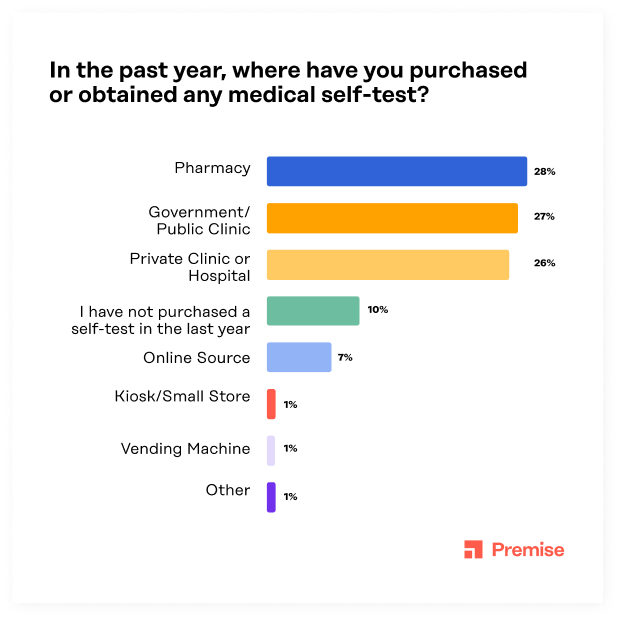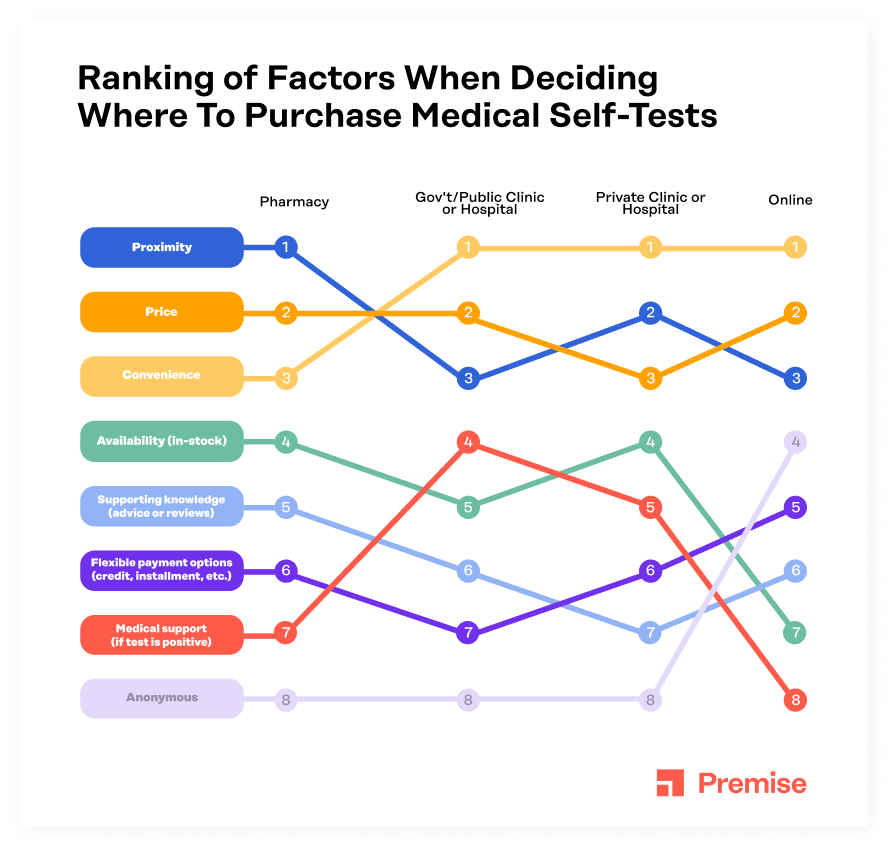Medical self-tests are becoming more popular globally as people seek out convenient and cost-effective ways to take charge of their health and monitor their own wellbeing. A major global non-profit working to ensure equitable access to reliable diagnosis recently worked with Premise to better understand how, where, and why people access medical self-tests.
Survey Results
Premise surveyed over 600 data Contributors in Colombia, Ghana, and Indonesia to learn more about their recent purchases of medical self-tests (e.g. Hepatitis-C, COVID-19, or HIV tests). The results show that the availability of these self-tests varies depending on where people live, how much money they make, and their gender.

In Colombia and Indonesia, government-run public clinics or hospitals were the most common sources for purchasing medical self-tests. The most common reason for choosing these locations was convenience, likely because the sites are widely available and people are familiar with the facilities. The importance of having access to medical support was higher for those getting self-tests from public clinics and hospitals compared to pharmacies or online sources. This suggests that people value being able to talk to or receive guidance from a medical professional when they receive a positive test result.

In Ghana, pharmacies were the most common place to obtain a medical self-test, with convenience being the main factor in choosing them. When choosing to purchase from a public clinic, local kiosk, or online source instead, price was the most important factor.
Respondents in all three countries cite convenience as a top reason for choosing where they purchase their tests.
Insights and Implications
The results of the survey offer important insights into the reasons behind the purchasing habits of people living in Ghana, Colombia, and Indonesia.
For example, in Indonesia, urban populations were more likely to purchase self-tests at government-run or public clinics (40%) than pharmacies (27%), and the top factors for doing so were proximity and convenience. This likely indicates that public facilities are more convenient and close to people in urban areas as compared to in rural areas, where pharmacies are the preferred source.
While results show that price is a factor in all three countries when choosing a location to purchase the test, people with higher incomes tend to obtain their self-tests from private healthcare facilities. In Colombia, there are also gender differences in purchasing habits, with men making their purchase online more often.
Overall, this information can help inform efforts to improve access to medical self-testing and affordable and reliable healthcare support.
Additionally, Premise Contributors routinely visit hospitals, pharmacies, and clinics to collect data on operations and capture images, allowing governments and health organizations to fill in any gaps in their databases. As a result, policymakers and healthcare professionals can better determine whether medical self-tests are accessible and affordable for all and ensure the right support and guidance are available.
About Premise
Premise’s software empowers international development and humanitarian aid organizations to collect crowdsourced information from real people all over the world, often in traditionally hard-to-reach places.
Over six million people in 140 countries are contributing via the Premise app on their smartphones, enabling our customers to understand audiences, measure effects, and monitor perspectives over time in order to employ a data-driven approach to timely decision-making. To learn more about Premise, read about our use cases or get in touch with us.